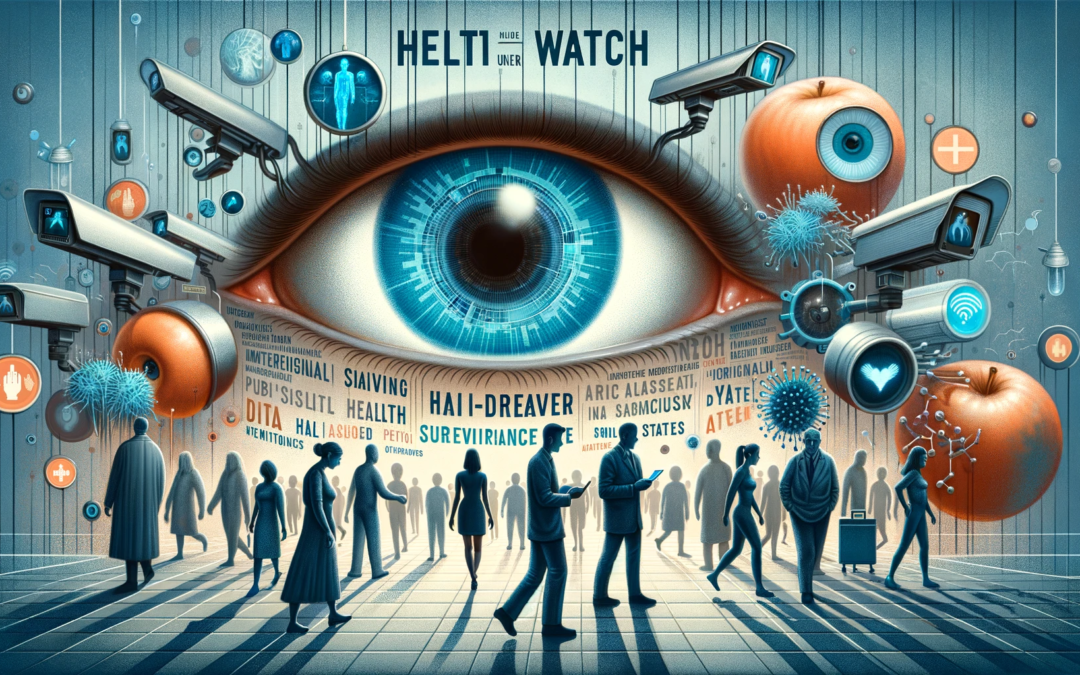Picture this: a world where your every cough, sneeze, and heart palpitation is monitored by an all-seeing artificial intelligence. While AI-driven health monitoring systems may have been initially developed for the greater good, there’s a dark side to this technology that we need to explore. In this blog post, we’ll delve into the potential for AI to create a global health surveillance state, where personal health data is continuously monitored and controlled by state or private entities. Brace yourself, because the future of healthcare might be more invasive than you think.
AI in Health Monitoring
AI has already made significant strides in health surveillance, with applications ranging from contact tracing to biometric monitoring and even behavioral prediction. These technologies have the potential to revolutionize public health by enabling early detection of outbreaks and providing personalized healthcare. But, as with any powerful tool, there are risks involved. We must carefully consider the benefits and drawbacks of AI-driven health surveillance before we find ourselves living in a world where Big Brother is always watching.
Privacy and Ethical Concerns
One of the biggest concerns surrounding AI-driven health surveillance is privacy. Continuous monitoring of personal health data raises red flags about the potential for misuse and abuse. Who has access to this data? How is it being used? These are questions that demand answers. We must strike a delicate balance between public health needs and individual privacy rights, ensuring that the benefits of AI in healthcare don’t come at the expense of our personal freedoms.
Potential for Abuse
In a world where AI-driven health surveillance systems are in place, the potential for abuse is alarming. Imagine a scenario where your personal health data is used for social control or political manipulation. It’s not just a dystopian nightmare; it’s a real possibility. We need to examine both real and hypothetical situations where these systems can lead to invasive surveillance and the erosion of personal freedoms. Vigilance is key to preventing a future where our health is under constant watch.
Global Implications
The impact of AI-driven health surveillance is not limited to a single country. Some nations may adopt more aggressive tactics, setting a precedent for others to follow suit. This could result in international disparities in the implementation and regulation of these technologies. It’s crucial to consider the global implications of AI in health monitoring and work towards establishing ethical standards and international cooperation to ensure a level playing field.
Strategies for Safeguarding Privacy
While the potential risks of AI-driven health surveillance are concerning, there are strategies we can employ to safeguard privacy. Stringent data protection laws, transparent policies, and public oversight are essential tools in preventing the misuse of personal health data. We must advocate for ethical AI use in health monitoring and establish international standards to protect individual rights in the age of surveillance.
Conclusion
AI has the power to revolutionize healthcare, but we must tread carefully. The rise of AI-driven surveillance states in the context of health monitoring demands our attention. As we navigate the future of healthcare, we must strike a balance between public health benefits and personal privacy and freedom. Let’s ensure that the potential of AI in health surveillance doesn’t overshadow the importance of individual rights. The world of healthcare may be changing, but our commitment to ethical considerations should remain steadfast.
Remember, the future of health surveillance is in our hands. Let’s make sure it’s a future where we can breathe easy, both physically and metaphorically.










